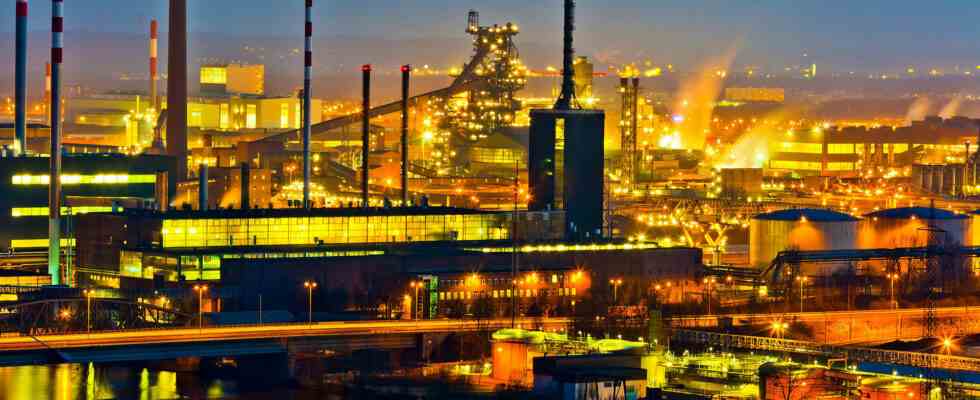Status: 01/24/2023 1:55 p.m
The economy in the euro area surprisingly returned to growth at the beginning of the year. New economic data suggest that a recession might still be averted.
The economy in the euro zone started the year surprisingly with growth. The purchasing managers’ index for the private sector, i.e. for industry and service providers together, rose by 0.9 to 50.2 points in January, according to the financial services provider S&P Global. After a six-month contraction, the barometer is above the 50-point mark again for the first time, from which point it signals growth.
Experts had expected a value of 49.8 points. “The fact that the eurozone economy continued to stabilize earlier in the year suggests the region could be avoiding a recession,” said S&P Global chief economist Chris Williamson. The significantly reduced risk of gas rationing is likely to have contributed to this, as well as the easing of supply bottlenecks.
“Recession in Germany not off the table”
In Germany, the economy contracted only slightly in January: Here the barometer rose for the third month in a row, by 0.7 to 49.7 points. However, the experts are not yet giving the all-clear. “The German economy started the new year relatively stably,” commented S&P Global economist Phil Smith on the development. “However, this does not mean that a recession in the eurozone’s largest economy is off the table.” According to initial estimates by the Federal Statistical Office, gross domestic product (GDP) stagnated in the fourth quarter of 2022.
At the same time, the delivery problems have abated, from which the manufacturers in Germany in particular benefited: “And the recent opening of the economy in China has contributed to the fact that the prospects for a global economic upswing have increased again, which in turn has boosted the optimism of the companies enormously,” explained Williamson. Above all, more jobs were created among service providers than they have been for six months. In industry, on the other hand, fewer new jobs were created than at any time in almost two years.
“Should strengthen ECB”
The surprisingly good economic development is likely to have consequences for the interest rate policy of the European Central Bank (ECB). “Today’s data should confirm the ECB’s assessment that the economy in the euro area will only go through a mild recession, which in itself increases the likelihood of further significant interest rate hikes,” said Commerzbank economist Christoph Weil.
The ECB ended its zero interest rate policy last year. The key interest rate is currently 2.50 percent. Next week it is likely to be raised again – probably to 3.00 percent. “The higher financing costs will slow down the economy with the usual time lag,” said Commerzbank economist Weil. “In addition, there is the clear appreciation of the euro, which is making the economy less competitive in terms of price on the world market.” Last but not least, high inflation is tearing deep holes in the coffers of private households.

